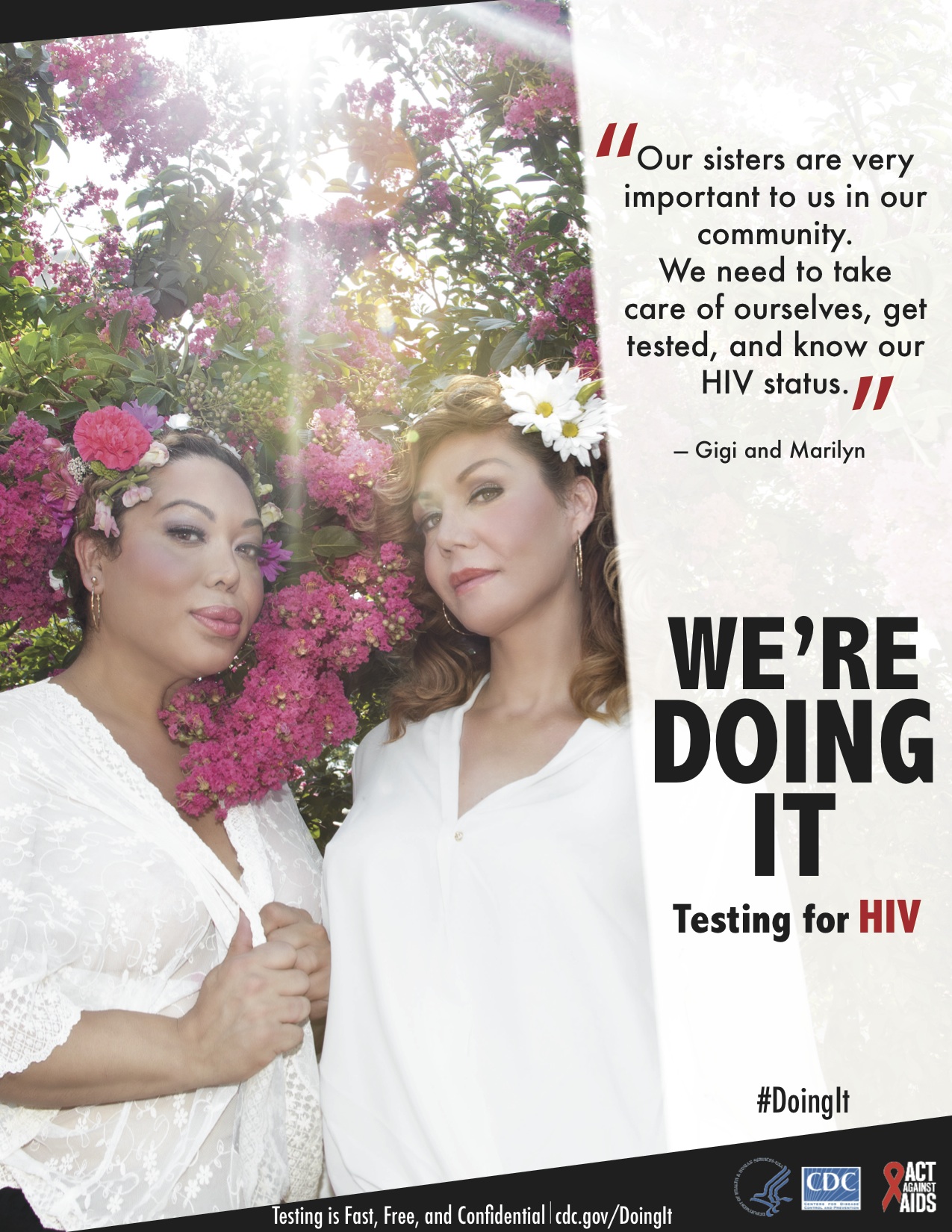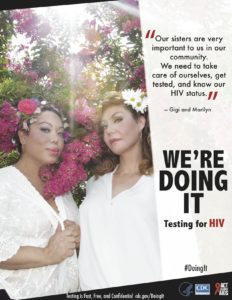When it comes to talking about health, it’s comfortable to discuss topics like eating healthier, losing weight and getting more sleep. It’s not easy to ask someone if they know their HIV status, especially in the Latinx community. It’s not easy to talk about condom use and having safe sex. It’s not easy to look at the HIV/AIDS numbers that disproportionately affect the Latinx community, especially among women.
What every Latinx should know about HIV
HIV continues to be a serious threat to the health of the Hispanic/Latinx community. In 2014, Hispanics/Latinos accounted for almost one quarter of all estimated new diagnoses of HIV in the United States and 6 dependent areas, despite representing about 17% of the total US population.
Challenges in reaching the Latinx community
Do you remember your parents talking to you about HIV? *crickets* Yeah, me too. No one ever discussed HIV or AIDS with me growing up. When I was in grad school and studying health research, I started asking questions about why there is such a high incidence of HIV and AIDS in the Latinx community. It’s not something people talk about! According to the CDC, a number of (generalized) factors contribute to the HIV epidemic in Latinx communities:
- A higher prevalence of HIV in Latino communities. More people are living with HIV (prevalence) in Hispanic/Latino communities than among some other races/ethnicities. Since Hispanics/Latinos tend to have sex with partners of the same race/ethnicity, the risk of HIV infection among Hispanics/Latinos is increased.
- Higher rates of sexually transmitted diseases (STDs). Hispanics/Latinos have relatively high rates for STDs compared to some other races/ethnicities, including chlamydia, gonorrhea, and syphilis. Research shows that the presence of another STD makes it easier to become infected with HIV.
- Cultural factors. Some Hispanics/Latinos might not seek testing, counseling, or treatment if infected because of stigma and discrimination. Traditional gender roles, cultural norms (“machismo” or toughness for males and “marianismo” or purity for females), and the stigma around homosexuality may add to prevention challenges.
- Social and structural factors. Poverty, migration patterns, lower educational level, limited access to health care, and language barriers may contribute to HIV among Hispanics/Latinos by limiting awareness about risks and opportunities for testing and care.
- Immigration status. Undocumented Hispanic/Latino immigrants may be afraid of disclosing their immigration status, making Hispanic/Latino immigrants less likely to access HIV prevention services, get an HIV test, or seek adequate treatment if HIV-positive.
More information on #DoingIt can be found here. Spanish resources for #Haciendolo are also available here.
Now that I have your attention, are you #DoingIt? Do you know your status? If you’re in Chicago (and in most metropolitan areas), there are a wealth of free and low-cost testing resources. This National HIV Testing Day (June 27), take a look at the places below and talk to your partner about getting tested. Knowing your status can be life saving!!
- Center on Halsted
- Walk-in Testing at Center on Halsted is offered on a walk-in basis. No appointments are necessary and referrals can also be made for HIV medical care.
- For more information, please call 773.661.0910.
- Center on Halsted also offers free HIV testing on a walk-in basis at various locations in Chicago:
- Mondays from 4:00–7:00 p.m. at Walgreens Pharmacy, 2817 N. Clark St.
- 1st Wednesdays from 6:00–9:00 p.m. at FFC Halsted, 3228 N Halsted St.
- Thursdays from 3:00–7:00 p.m. at Walgreens Pharmacy, 151 N. State St.
- 4th Thursdays from 6:00–9:00 p.m. at The Sofo Tap, 4923 N. Clark St.
- 1st and 3rd Fridays from 3:00pm – 6:00pm at Walgreens Pharmacy, 1601 N. Milwaukee Ave.
- 2nd & 4th Fridays from 3:00 p.m.–6:00 p.m. at Walgreens Pharmacy, 2001 N. Milwaukee Ave.
- Quarterly – May 18th, Aug. 17th, Nov. 16th from 7:00pm – 11:00pm at Cell Block, 3702 N. Halsted
- Walk-in Testing at Center on Halsted is offered on a walk-in basis. No appointments are necessary and referrals can also be made for HIV medical care.
- Howard Brown Health
- Howard Brown Health Englewood HIV Primary Care Clinic, 641 W 63rd St., Chicago, IL 60621
- Operation: Monday, Wednesday, and Thursday 9:00 A.M. to 5:00 P.M.
- Tuesday 11:00 A.M. to 5:00 P.M.
- Friday 9:00 A.M. to 3:00 P.M.
- Howard Brown Health Sheridan, 4025 N. Sheridan Road, Chicago IL 60613
- Operation: Monday – Thursdays : Noon – 7 p.m.
- Friday: 9 a.m. – Noon; 1 – 4 p.m.
- Saturday: 9 a.m. – 2 p.m.
- Howard Brown Health Clark, 6500 N Clark Street, Chicago IL 60626
- Operation: Monday – Thursday: Noon – 7 p.m.
- Friday: 9 a.m. – Noon; 1 – 4 p.m.
- Howard Brown Health Englewood HIV Primary Care Clinic, 641 W 63rd St., Chicago, IL 60621
-
UIC-Uptown HIV Primary Care Clinic
-
-
845 W Wilson Ave., Second Floor, Chicago, IL 606040
-
(312) 996-8067
-
Operation: Monday, Tuesday, and Thursday 9:00 A.M. to 5:00 P.M.
-
For the State of Illinois AIDS/HIV & STD Hotline call 1.800.AID.AIDS (243.2437) or TTY 1.800.782.0423, or email NXTLVL@centeronhalsted.org. ALL CALLS ARE ANONYMOUS.


